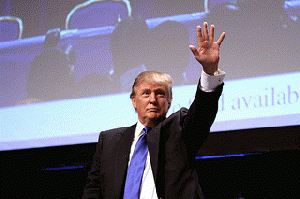The Chinese government devalued the renminbi (yuan) about 2 percent against the U.S. dollar and roiled stock markets around the globe. Other countries have devalued their currencies more than the Chinese without a peep. When a country "manages its currency", it is pursuing its own self-interest. The act of devaluation makes the country's goods more competitive globally. A devaluation of the yuan against the U.S. dollar means Chinese goods are cheaper for American importers in terms of U.S. dollars. In other words, since the U.S. dollar can be more yuan after devaluation, America could import more of the same goods post devaluation than pre devaluation. But there are always two sides to a "coin": namely, devaluation. It is true that devaluation makes Chinese goods cheaper: it also makes American goods more expensive in China. Hence, a yuan devaluation against the U.S. dollar increases Chinese exports and reduces China's imports. But U.S. exports to China would decrease (and hurt the U.S. export sector): U.S consumers will buy more "made-in-China" goods. The net effect of these bilateral trades could be to improve the Chinese balance of trade account vis-a-vis the U.S. balance of trade account. Ultimately though whether or not China's (or the U.S.'s) balance of trade will improve following devaluation depends on many factors including how price sensitive the traded goods are.
The International Monetary Fund (IMF) and the U.S. government have had concerns about the Chinese government's policy of managing its currency. For policy makers with a strong market orientation, currency management is a venal sin. So it is a wish come true when the Chinese government indicated it wants to move the exchange rate (dollar/yuan rate) closer to the market: the rate has been closely managed with a four point spread, 2 percent on either side of a fixed rate (whose determination is obscure). But be careful what you ask for: you might get it. So when in fact devaluation takes place the charge is China is up to no good: they want to export their economic slow-down to the U.S. Presidential aspirant Donald Trump falls in this camp. At least this is what he articulated on C-SPAN during his press meeting on August 11, 2015. Perhaps, such a position is justified because China's exports (accounting for 22 percent of GDP in 2014) are weak and down 8.3 percent from a year ago; the economy registered a 7.4 percent growth rate in 2014 the poorest performance in a while. (See Market Watch)
From China's point of view the devaluation was part of it effort to be part of the Special Rights currency basket. So according to Market Watch, "Beijing has been pressing the IMF to include the yuan in its Special Drawing Rights currency basket, currently made up of dollars, yen, pounds and euros. The IMF has resisted so far, urging the country to set a more market-determined interest rate." So Mr. Trump's opprobrium of China's devaluation motives might be off the mark. It might be an effort by the Chinese to flex their international financial muscle.
One might disagree with Donald Trump on many issues--the wall he wants the Mexicans to pay for, his possible xenophobic immigration policy, his alignment with birtherism, his oversized self-confidence (braggadocio)--but some aspects of his position on trade with China and Mexico contain some merits. In particular, in his press conference he noted among other things that Ford plans to build a $2.5 billion car plant [that will create 3800 jobs] in Mexico and pay no U.S. tax. According to Mr. Trump, "They will be closing car plants in Michigan and lots of other places." (See C-SPAN) This Ford foreign direct investment (FDI) is in addition, according to Reuters (and to the consternation of the president of United Auto Workers (UAW) union) to GM's decision to spend $5 billion in Mexico. Ford justifies its action with the argument that wages are lower in Mexico; Mexico's proximity to the lucrative U.S. market: "Ford said its investment, made in its 90th year in Mexico is a way to keep the company competitive with other global automakers." (See Reuters) It goes without saying that Mr. Trump was spot on in his press conference when he repeatedly said, "How does not help us?" It does not! In fact it hurts us in terms of jobs--there are 3800 jobs to be created in Mexico at the expense of American jobs. It makes it difficult for wages to rise in the U.S. with an increase in employment redundancy. And U.S. income and tax base are adversely affected, too. This could easily be rectified with a tariff on cars made in Mexico byFord or GM and shipped to the U.S. But a tariff is a non-starter because of international trade agreements and might be in contravention of World Trade Organization (WTO) policies to which the U.S. is a signatory. Long term, however, the job erosion caused by moving jobs abroad is untenable. Perhaps, Mr. Trump can do a better job than our politicians in trade negations with China and Mexico--although he has not bothered to tell us how.
A possible way the stanch the outflow of American jobs may be the introduction of a valued added tax (VAT) on imports. Many European countries have an active VAT in place. The VAT can be set to equal the difference between the import price and sales price of imported goods. If VAT were applied to cars made in Mexico, this would equalize the price of imported cars and U.S. cars. The upshot of this: U.S. auto manufacturers would have no incentive to ship their operations to Mexico. A second effect: the VAT would be a source of government revenue. The VAT would also address the issue of the loss of American jobs to Mexico and China. Lacking any incentive to move their production facilities abroad means that American firms would keep them at home and billions of FDI dollars would be distributed to American ancillary suppliers and workers.





